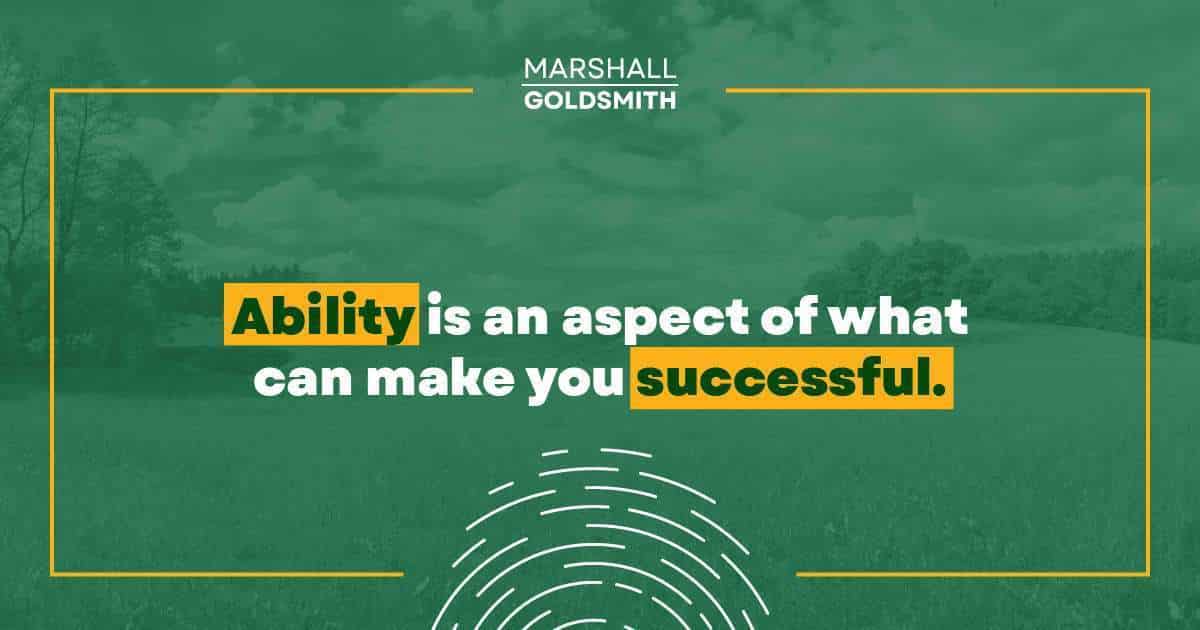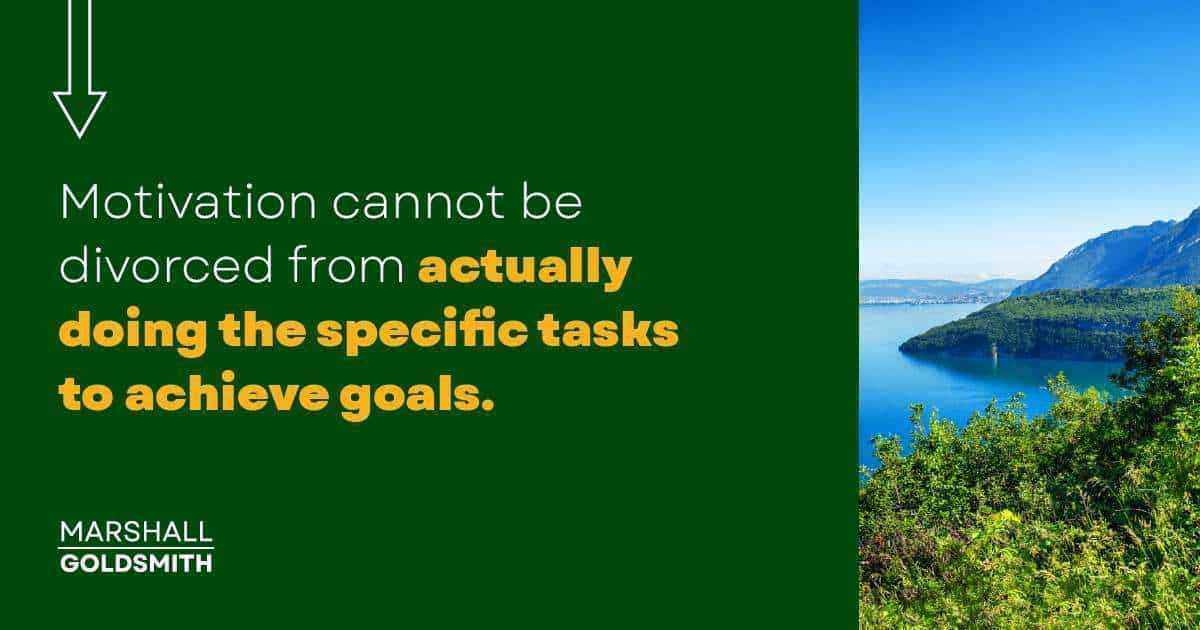Playing Favorites By Marshall Goldsmith There’s a reason I devote...
Just about everyone has the ability to succeed at something. Sometimes people naturally know what they’re good at, and they find a way to make this ability serve them in a career. Some other people may not feel that their abilities align with what they want to achieve in life, as if there are differences between ability and success. Ability is an aspect of what can make you successful.
Over my decades as a coach, I’ve identified six considerations for success. These are motivation, understanding, confidence, support, the marketplace — and ability. Here I’m going to look a little further at ability.
Your ability is the level of skill you need to succeed at your chosen task. Ideally, you know what you’re good at and what you’re bad at, and sometimes you take on tasks beyond your abilities because you want to stretch. Otherwise, you stay within your wheelhouse of superior skills. If you have a superior skill, something that sets you apart, it should go hand in glove with motivation. Staying motivated to do something you excel at should not be a problem. And yet it can be.

My friend Sanyin Siang, the co-founder and director of the Coach K Center on Leadership & Ethics at Duke University, believes that each of us has at least one skill that we take for granted and are perplexed when we discover that it’s out of reach for everyone else. She calls this the “liability of expertise.” Synch skills might include perfect pitch, supernatural eye-hand coordination, blazing foot speed. Such talents may be a liability, according to Sanyin, because they come so easily to us. They don’t feel fully earned, and we discount the many ways they make us special. It’s like having a superpower and never using it.
But if we can’t embrace an ability that comes easily to us, what’s the alternative? Creating a career in areas where our abilities are less than optimal, where we’re in the middle of the pack, and not so special? I wouldn’t recommend that.
But ability isn’t merely being preternaturally gifted at one extreme and possessing the bare minimum skill to do the job at the other. Think of a supremely talented athlete like Serena Williams. She doesn’t just possess strength and focus. She also has determination, as well as a host of other qualities that have made her a world-class champion athlete. Ability alone wouldn’t have gotten her so far.
Emotional and psychological elements—temperament, doggedness, persuasiveness, equanimity—play an equally crucial role in establishing ability. Dealing with rejection, for example, is an essential skill for salespeople and actors. Oncologists spend decades in a lab testing and waiting for a cancer treatment protocol to prove effective, with no guarantee that their efforts will ever deliver a breakthrough. Their heroic defiance of failure again and again, not their biochemistry expertise, is what defines their ability to find a cure. If you want to write novels for a living, a willingness to be alone at your desk day after day is as necessary as your facility with plot, character, and dialogue. Being comfortable with solitude draws you to your desk each morning.
My mother was an elementary school teacher from the 1950s through the 1970s in rural Kentucky. When she filled in her students’ report cards, she gave them a letter grade in three categories: Achievement, Effort, and Conduct. There was also a side box for Attendance. Educators back then, it seems, knew that a student’s ability was more than knowing the right answers on a test. Trying, behaving well, and showing up counted too.
Not much has changed for us in adulthood.
Our ability is not one isolated talent — it’s a portfolio of skills and personality traits that have to match up with the life we want to lead.

Adding Too Much Value Won’t Get You There By Marshall...
C-Suite Master Class: No, But, However By Marshall Goldsmith Continuing...
The Doerr Institute: Expanding the Market for Coaches By Marshall...
Making Leadership Development Part of the College Degree at Rice...
Sanyin Siang – Winner of the Thinkers50 Marshall Goldsmith Coaching...
Thinkers50 Marshall Goldsmith Distinguished Achievement Award in Coaching – Nominees...
Leading with Influence: What Is Influence360°? By Marshall Goldsmith Founder...
Are You a Dominator, Manipulator, Persuader or Influencer? By Marshall...
Leading with Influence: Redefining Modern Influence Part 2 By Marshall...
My mission is simple. I want to help successful people achieve positive, lasting change and behavior; for themselves, their people, and their teams. I want to help you make your life a little better. With four decades of experience helping top CEOs and executives overcome limiting beliefs and behaviors to achieve greater success, I don’t do this for fame and accolades. I do this because I love helping people!
As an executive educator and coach, I help people understand how our beliefs and the environments we operate in can trigger negative behaviors. Through simple and practical advice, I help people achieve and sustain positive behavioral change.